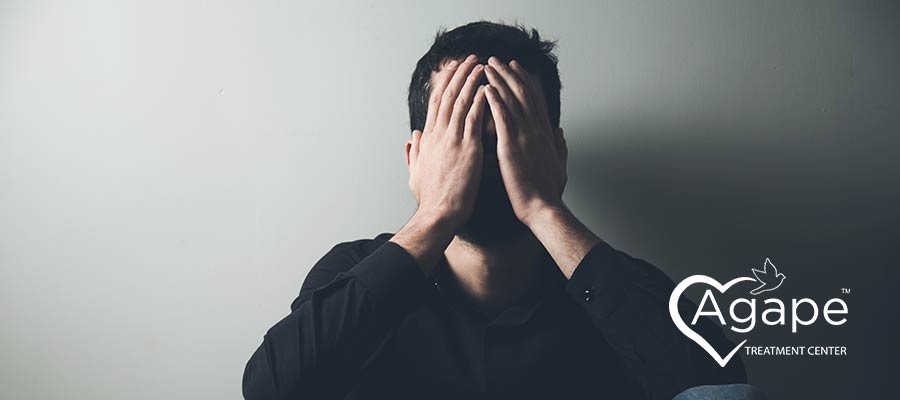Anxiety is normal, but it can become overwhelming and cause issues. Feeling anxious every day, especially if it’s strong or constant, could mean something is not right.
Too much anxiety isn’t good for you and can interfere with your life and make it difficult to function normally.
Here’s what you need to know if you or a loved one are experiencing feelings of anxiety, especially if you’re worried that it’s becoming a problem.
Table of Contents
ToggleUnderstanding Anxiety
One of the first things you need to know is that anxiety disorders are very common. An estimated 40 million people have an anxiety disorder in the United States alone.
It is a normal feeling when you’re nervous or worried about something, like achieving a goal. It can be healthy to feel this way.
There is a difference between feeling anxious and developing an anxiety disorder.
However, since anxiety disorders are so common, keeping an eye on your anxiety and understanding it is important. Knowing what is and isn’t normal anxiety can help you decide when it’s time to seek help.
At the most, basic level anxiety is an uncomfortable feeling about the future. Feeling that the future will be worse than the present can be a general or specific concern.
Anxious feelings occur when you feel worried and your mind gives you many reasons to explain the feeling. Usually, when you feel anxious, your brain tries to find reasons for it. This doesn’t mean those reasons caused the anxiety, but rather that your brain is trying to make sense of the feeling.
What Causes Anxiety?
Anxiety is a form of forward-thinking. It can be caused by various factors, such as situations, chemicals, or personal issues. However, it often indicates that you are focusing too much on the future instead of living in the present.
That’s not always a bad thing. Being proactive can help with managing finances. It can also help with covering rent. Additionally, it can ensure access to basic necessities such as food, clothing, and tools for daily needs.
When anxiety becomes uncontrollable, it may indicate a chemical imbalance or excessive focus on the future instead of the present.
Signs and Symptoms of an Anxiety Disorder:
Anxiety becomes a disorder when it begins to impair normal functioning. You don’t necessarily need to be having panic attacks or other classic symptoms of an anxiety disorder to have one. In fact, a lot of anxiety disorders can look like being a high-achiever or over-productive from the outside.
Here are common signs and symptoms to look out for in yourself or someone you care about.
- Avoiding certain people or places
- Difficulty concentrating
- Fatigue
- Feeling unrested when you wake up
- Insomnia
- Fast heart rate
- Feeling afraid, nervous, or restless, especially when the situation doesn’t merit your response
- Hyperventilation
- Chronic pain (can also be a cause of anxiety, not just a symptom)
Having these symptoms does not necessarily mean you have anxiety because they can also indicate other disorders and problems.
If you have several of these symptoms you may benefit from mental health treatment. It’s a good idea to speak with a doctor and see if you can get evaluated.
Why Do I Have Anxiety Every Day?
It’s hard to say exactly the reasons anyone has anxiety every day. There are a lot of potential causes. The main reason is usually spending too much time thinking about the future and not enough time enjoying the present.
It could be due to chemicals in your brain, your current situation, or a habit you’ve formed over time.
Regardless of the reasons, many people can benefit from using similar techniques and tools to lessen anxiety.
How Can I Reduce Anxiety?
There are many ways to reduce anxiety and its severity, such as using various techniques and coping mechanisms. But here are a few of the most common or most effective options you can use in your life.
Avoiding Caffeine
Many people rely on caffeine to stay alert and focused throughout the day. It is widely used and provides a much-needed energy boost for those struggling with concentration.
The problem is that caffeine can also increase anxiety. Drinking too much coffee can make you feel jittery.
Some people need to cut out caffeine entirely, while other people can get away with reducing the level of caffeine they drink, limiting when they drink caffeinated drinks, and how quickly they drink them.
Avoiding Alcohol
Alcohol is another common substance in today’s society, but it is also known to cause a wide variety of problems, especially if you’re already dealing with an anxiety disorder.
Alcohol can affect emotions and focus negatively. It can also lower mood and increase anxiety. Additionally, it can make it harder to redirect harmful thoughts. The aftereffects of alcohol can also be uncomfortable or painful.
Drinking less alcohol or avoiding it altogether can help reduce anxiety and give you better control over your reactions to it. This is similar to the effects of caffeine.
Deep Breathing/Meditation
Deep breathing helps with anxiety because it slows down your brain and helps you focus. It also calms your body and stops anxious feelings.
Meditation combines thinking and breathing to create calmness and improve thought control, making it easier to avoid anxious thoughts.
Practicing A Self-Care Routine
Self-care is important for managing anxiety and reducing its impact. It is often misunderstood but can be very helpful.
A self-care routine can include things like:
- Make sure you get enough to eat
- Eating a balanced diet
- Getting some exercise every week
- Staying hydrated
- Taking some time to yourself every week
- Keeping a regular schedule
- Making your home environment a nice place to be
- Giving yourself the occasional treat
- Rewarding yourself for completing difficult tasks
These are some self-care items that can help reduce and control anxiety, but there are many more options available.
When Should I Seek Treatment?
There are a lot of different possible signs that it’s time to seek treatment. One of the common signs is actually thinking that you might need help with your anxiety.
However, here are some other common signs that it’s time to get help:
- If anxiety is getting in the way of your normal activities
- If you’re starting to have panic attacks
- If you’re using drugs or alcohol to manage your anxiety
- If you’re having thoughts of self-harm or suicide (seek emergency care)
Agape Treatment Center can assist with anxiety through their treatment program. Seek their help for anxiety issues. If you’re not sure if Agape Treatment Center is right for you, you can learn more about our admissions process. You can also view our gallery to get an idea of what the center looks like.

Stephanie Catalano is an accomplished Clinical Director at Agape Behavioral Healthcare. With a Master of Social Work degree, LCSW license, and extensive training in Rapid Resolution Therapy under her belt, she brings a wealth of expertise to her role. Her unique combination of education and experience allows her to provide exceptional care to clients and lead her team with confidence. Stephanie’s joy comes from witnessing the moments when her patients creatively connect the dots and bravely move toward reclaiming their power. Her purpose is to help individuals understand their past so they can create a future full of hope, growth, and success. Stephanie attributes a large portion of her success to the supportive culture and strong sense of community fostered by the Agape team.







